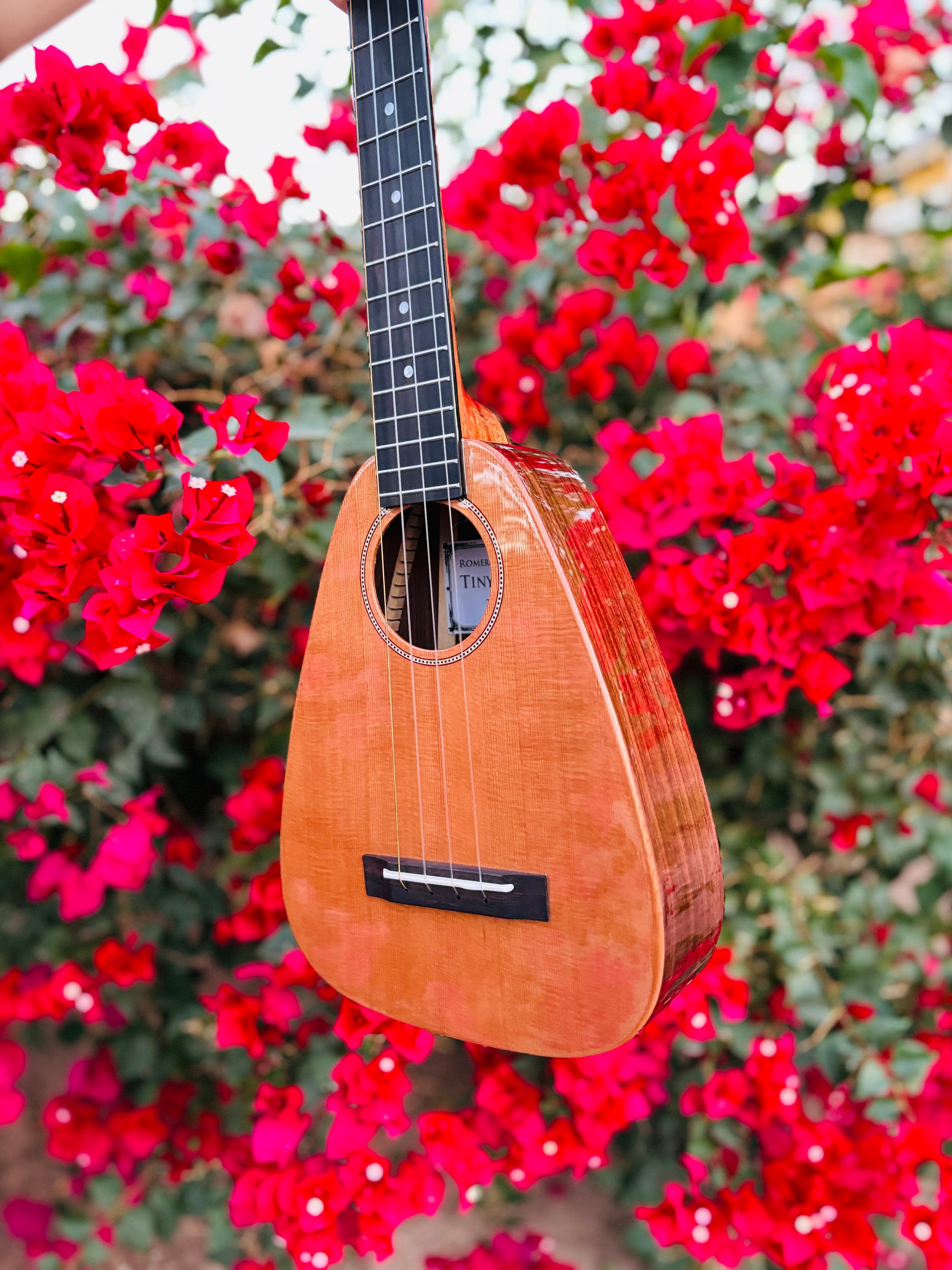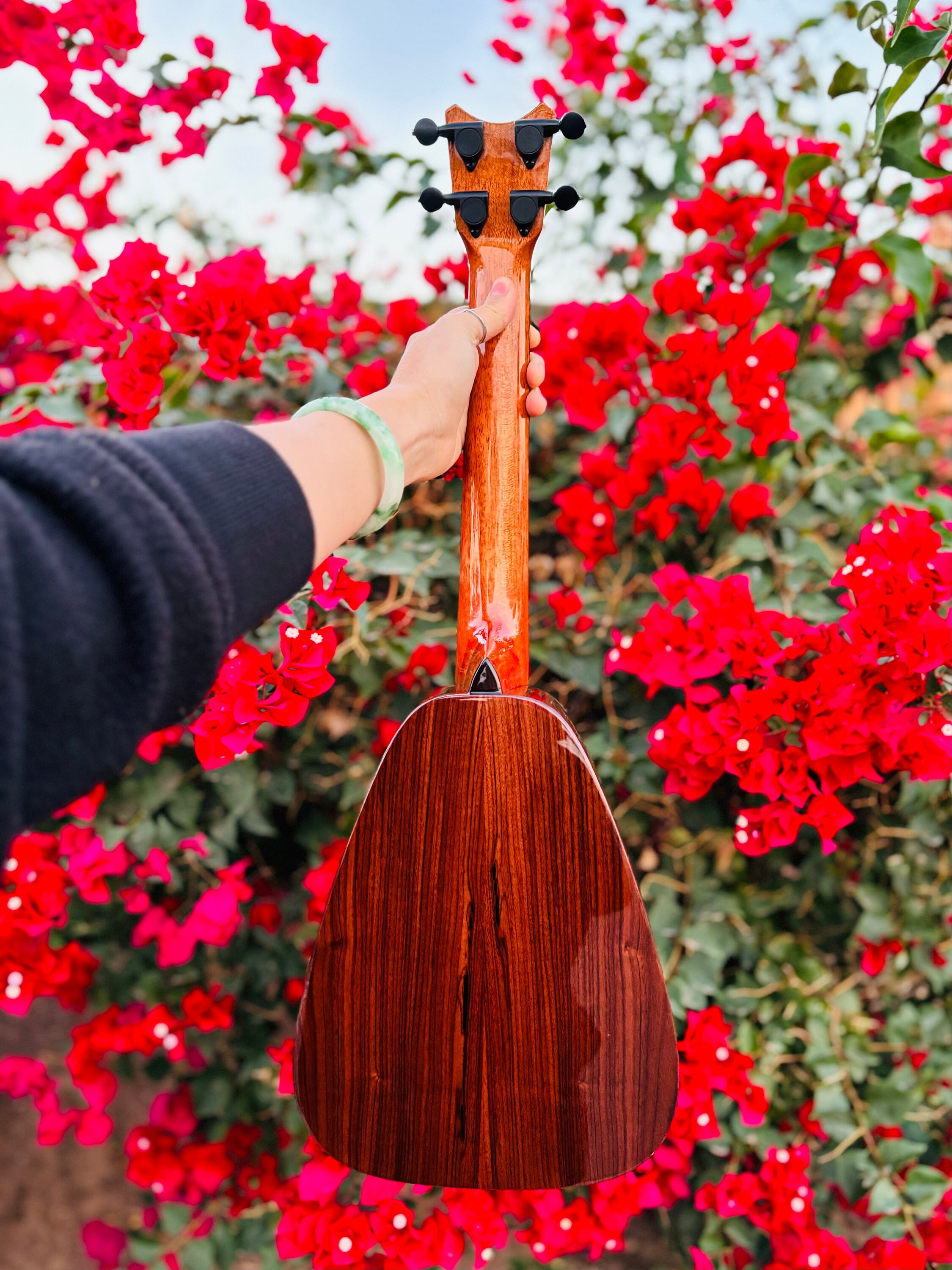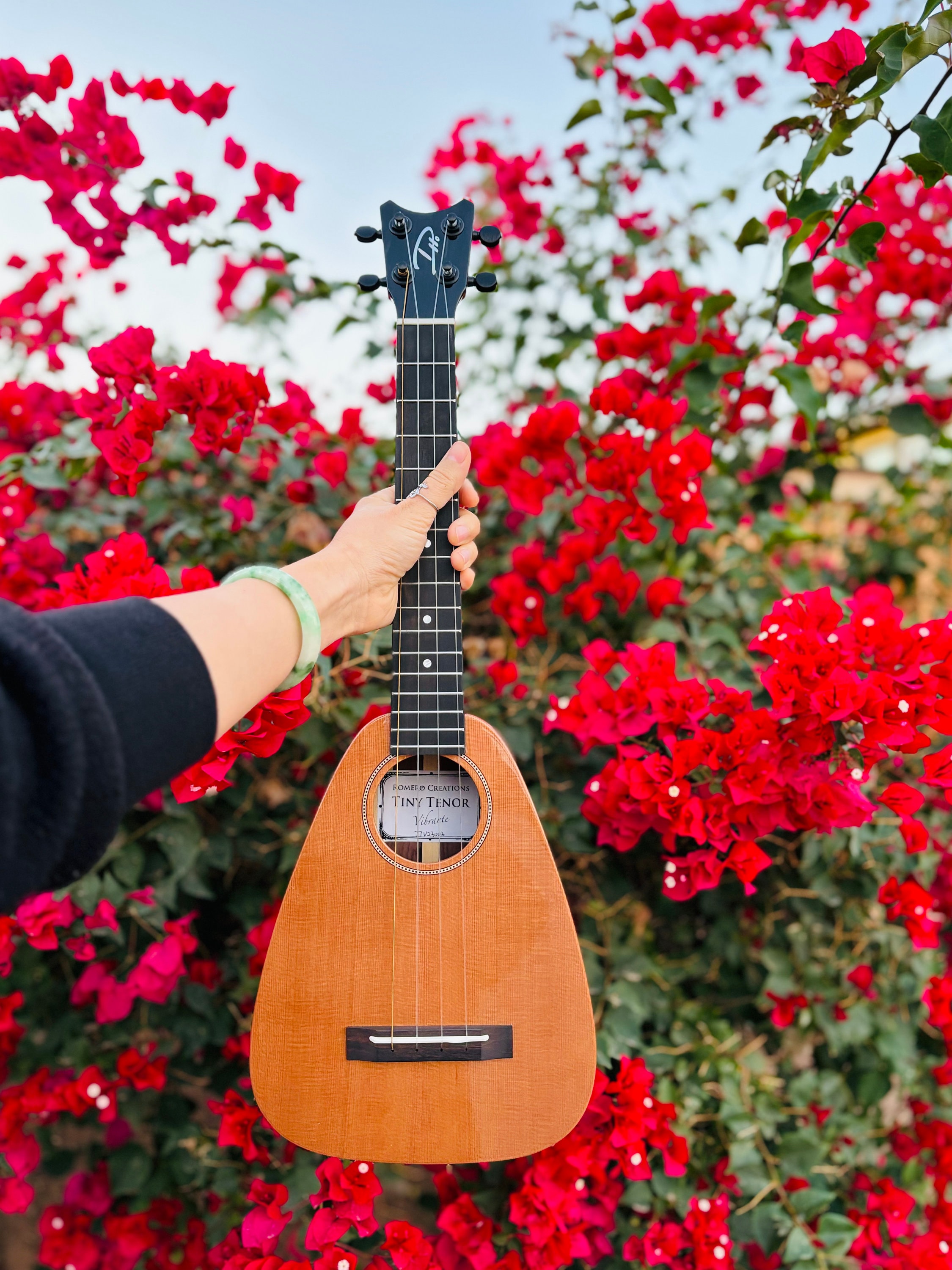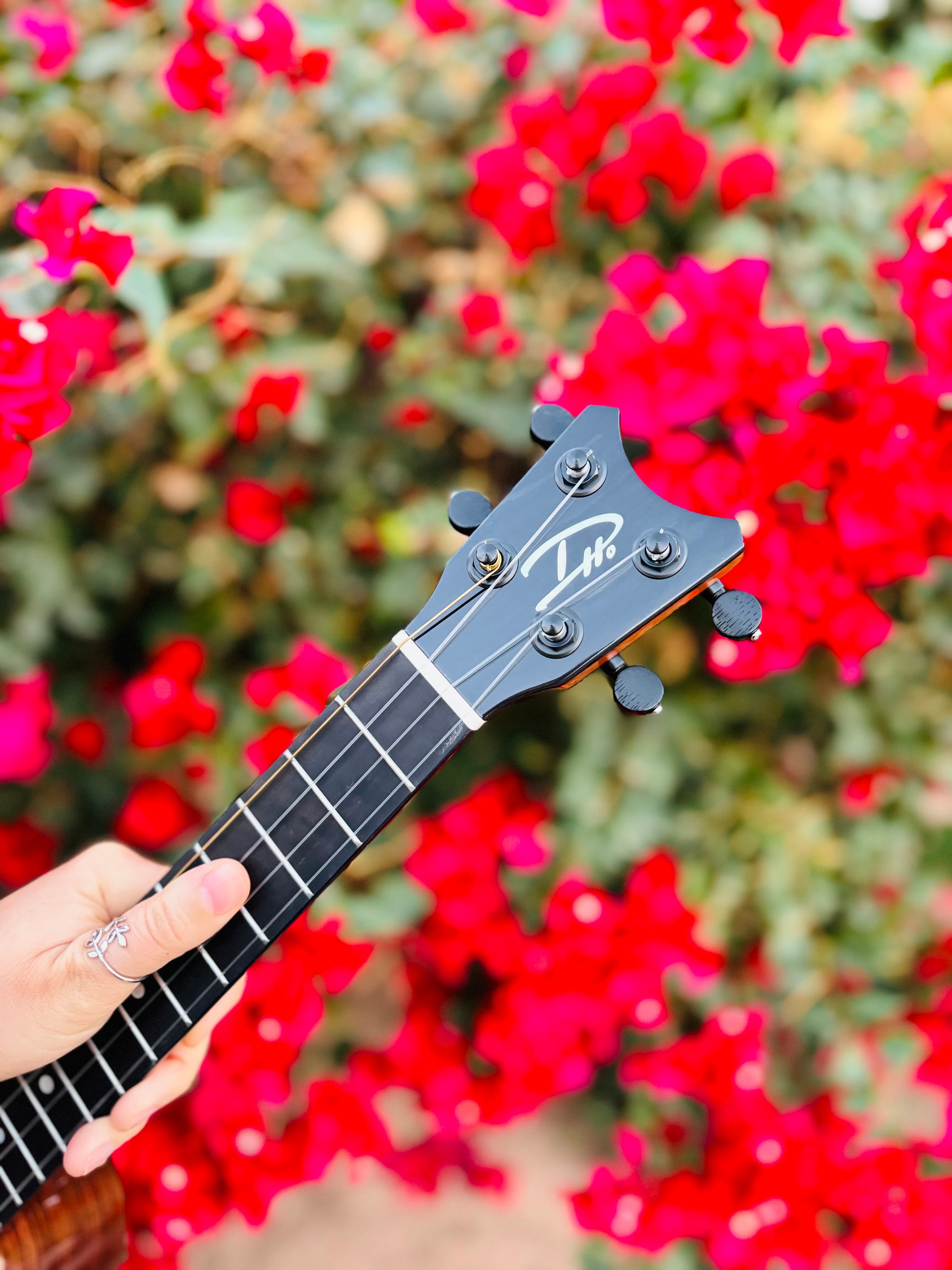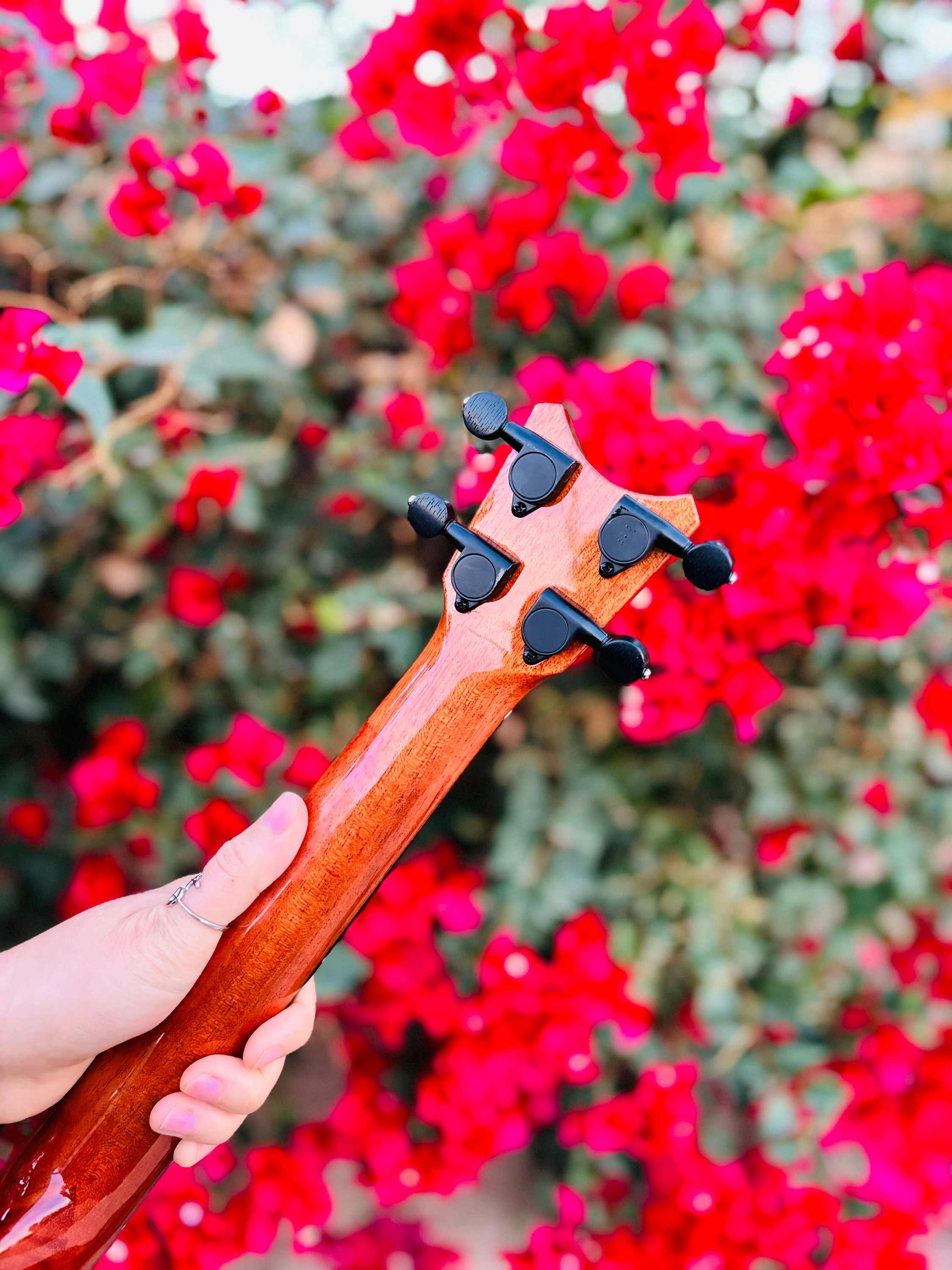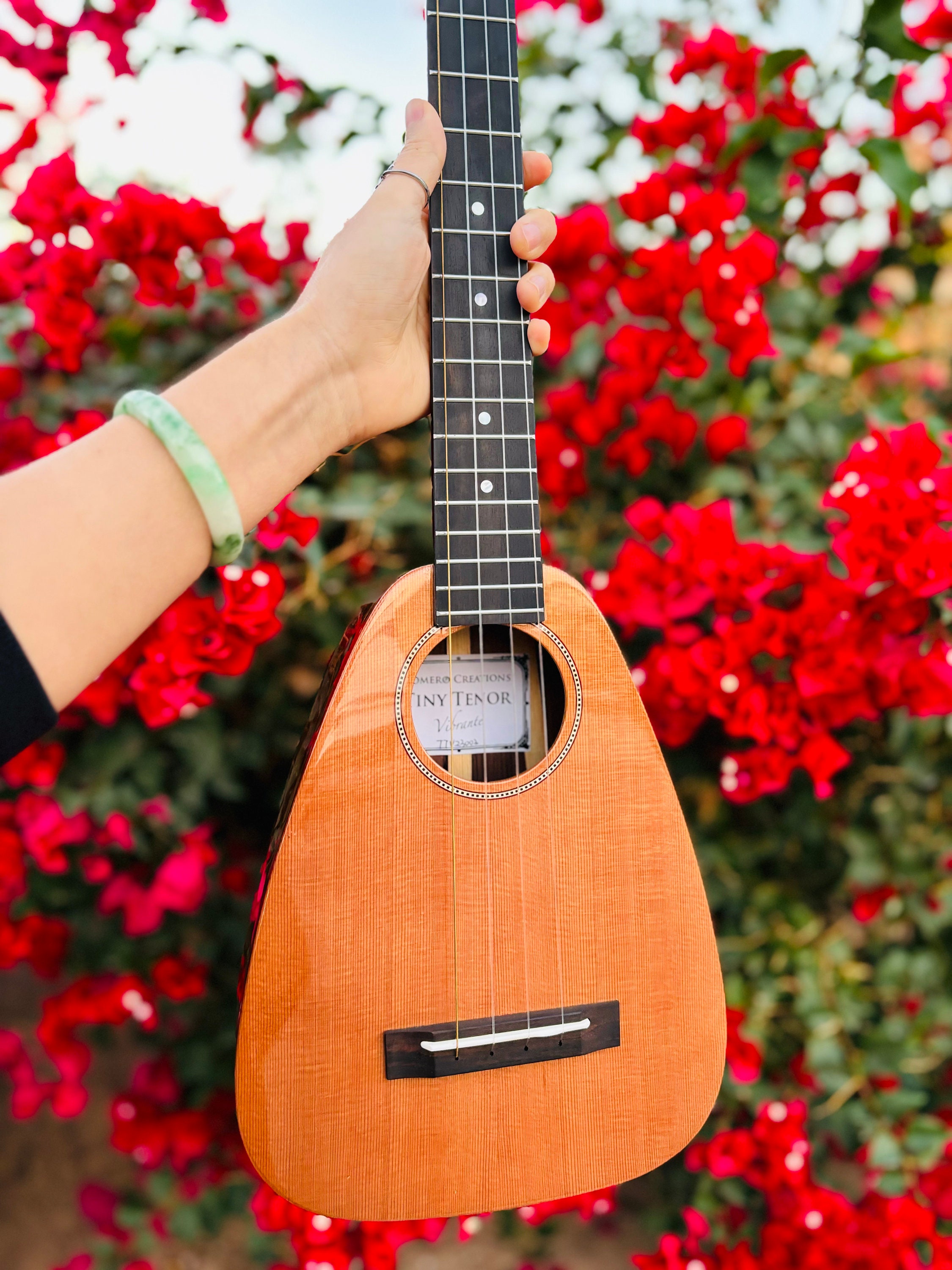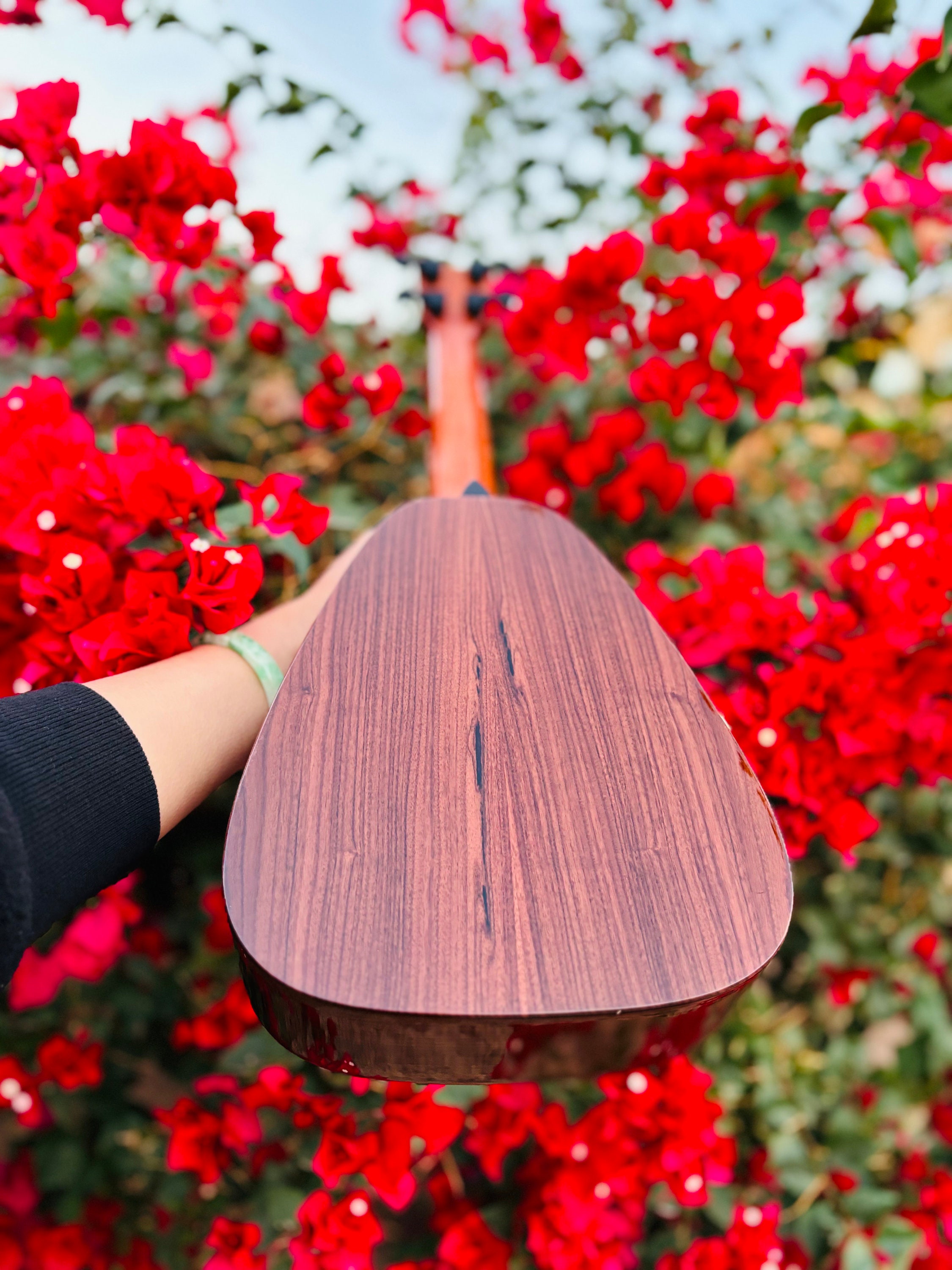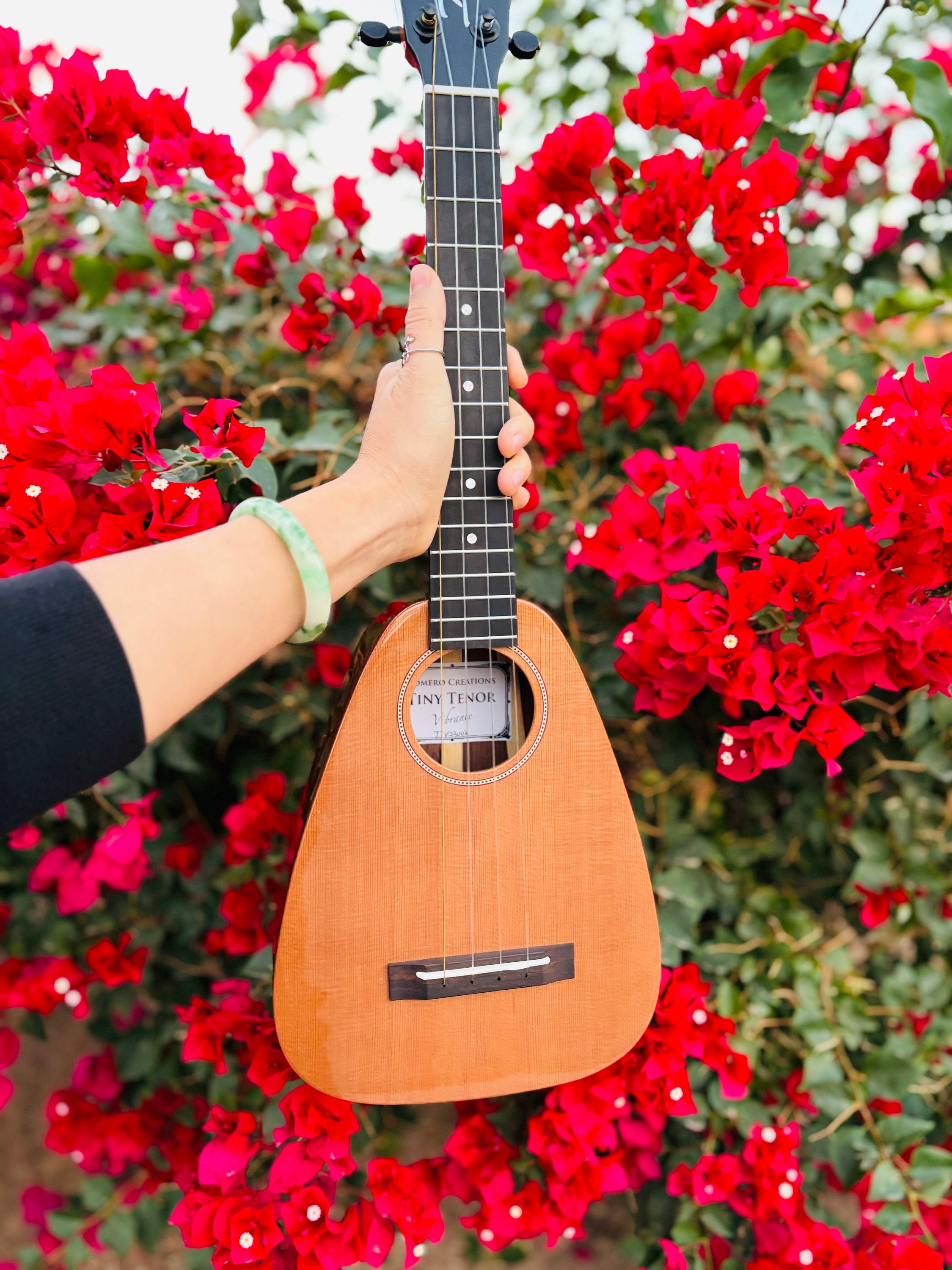Romero Creations Vibrante Tiny Tenor Cedar | Low G Solid Cedar Ukulele Bundle
$1,400.00
Romero Creations Tiny Tenor Vibrante Ukulele
The Tiny Tenor design is a tenor scale ‘ukulele built to the length of a concert ‘ukulele, maximizing portability without compromising sound.
It was Romero Creations’ first instrument, and was conceptualized by GRAMMY® Award winning ‘ukulele virtuoso Daniel Ho and master luthier Pepe Romero.
SPECIFICATIONS
-Designed by Pepe Romero
-Handcrafted, cedar top
-Pau Ferro body
-17” tenor length scale
-14 frets to the body
-Fits in a concert ukulele case
-Easy access to all frets
-Powerful, crisp tone
-High quality 16:1 tuners
-Ebony fingerboard
-Ebony bridge
-Ebony tuner buttons (hand made)
-Daniel Ho logo
-Pepe Romero Strings UT2 Tenor Ukulele Set (Low G)
★ Comes with a Romero Creations soft shell, eco-friendly case made by Access. “It is light, comfortable, and durable. I’ve been using it for seven years and it is in perfect condition.” ~ Daniel Ho
WHAT YOU GET:
-Tiny Tenor Low G Vibrante Ukulele
-Romero Creations Soft Shell Gig Bag
-Ukulele Humidifer
-Ukelele Tuner
-Ukulele Capo
-Complimentary Shipping
The choice of wood for an instrument can significantly impact its tone, resonance, and overall playability. Here are some effects that cedar wood can have on an instrument, specifically a ukulele or guitar, to help you decide whether it suits your preferences:
1. Tone: Warmth. Cedar is known for producing a warm and rich tone. Instruments made with cedar tend to have a pronounced midrange and a balanced sound profile. This warmth can be especially appealing for genres that benefit from a mellow and expressive tone, such as classical, folk, or fingerstyle playing.
2. Sensitivity and Responsiveness: Quick Response. Cedar is often more responsive to light playing compared to some other tonewoods. This means that even with gentle fingerpicking or light strumming, the instrument can produce a vibrant and articulate sound. This quality makes cedar guitars suitable for players who appreciate dynamic responsiveness.
3. Volume: Moderate Volume. While cedar doesn't generally produce as much volume as some harder tonewoods like spruce, it offers a good balance between volume and a nuanced, expressive sound. This can make it a good choice for solo performers or those who prioritize tonal clarity over sheer volume.
4. Sustain: Sustained Notes. Cedar typically provides a moderate to short sustain compared to other tonewoods. This can be advantageous for players who prefer a more controlled and focused sound, particularly in fingerstyle playing.
5. Aesthetics: Appearance. Cedar often has a distinct reddish-brown hue and a fine, straight grain pattern, contributing to the instrument's visual appeal. The aesthetic qualities of cedar can be an important factor for those who appreciate the natural beauty of wood in their instruments.
6. Environmental Considerations: Sustainability: Cedar is generally considered more sustainable than some other tonewoods, as it is often sourced from responsibly managed forests. If environmental impact is a concern for you, choosing an instrument made from cedar might align with your values.

